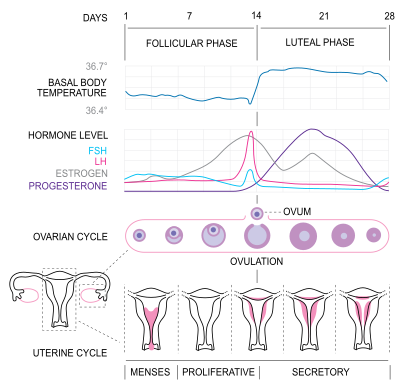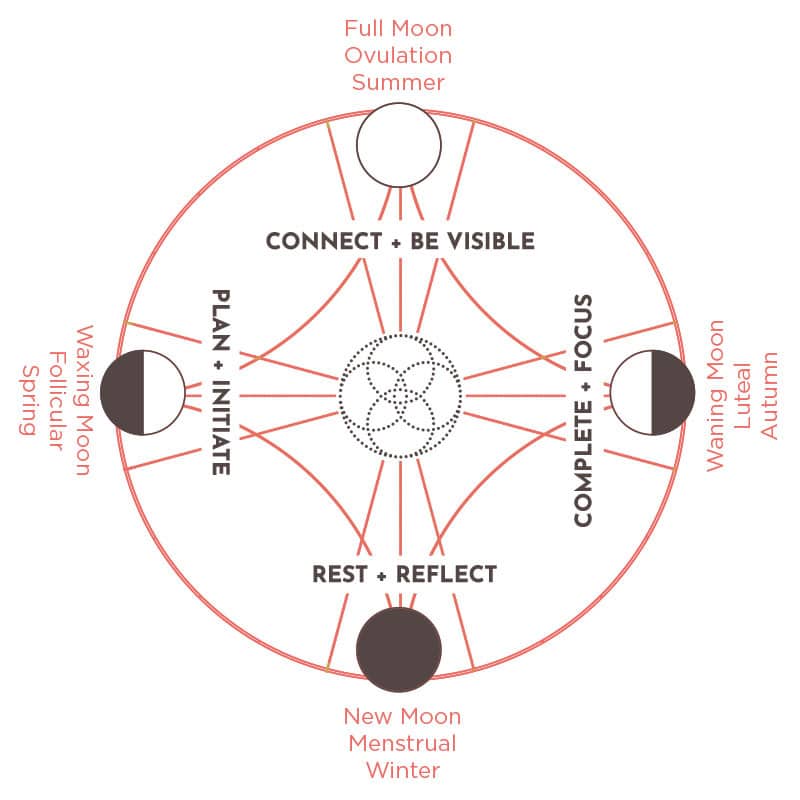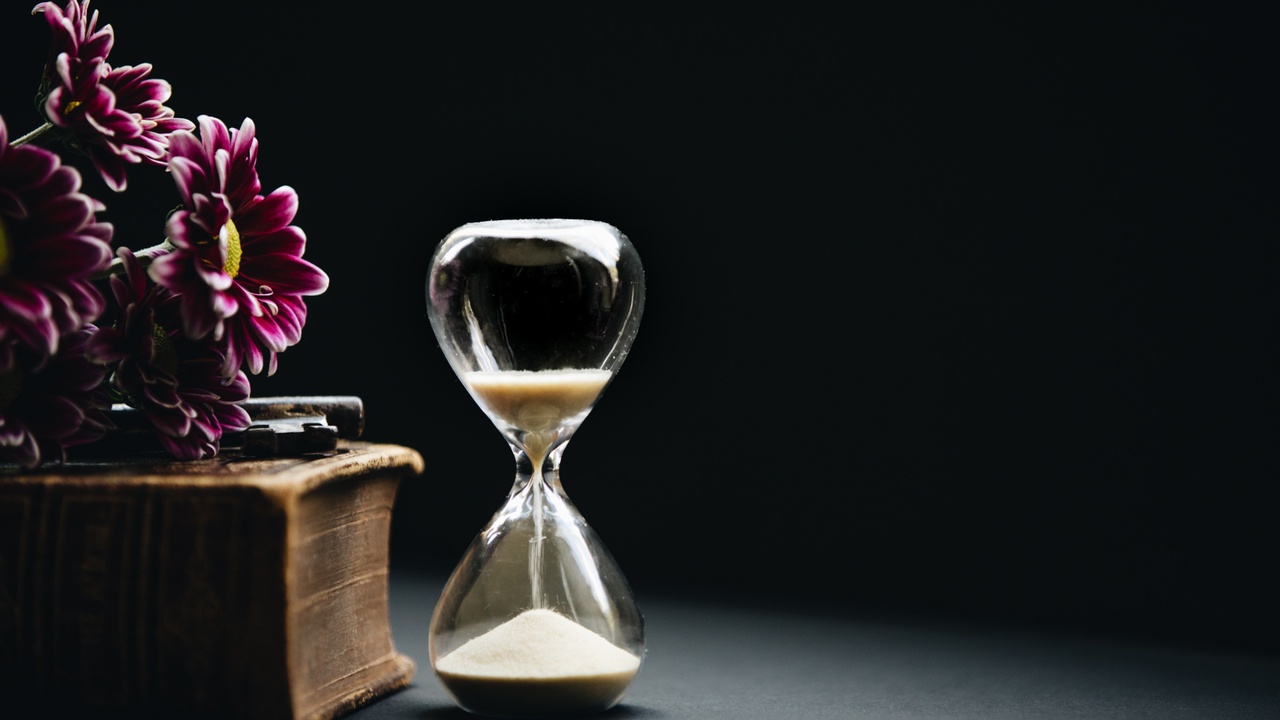Do Less: A Revolutionary Approach to Time and Energy Management for Ambitious Women by Kate Northrup (Book Summary)
Jul 12, 2022
“When you do less, you have more energy, time, and enthusiasm for the things that matter the most to you. And focusing in on those catapults your results in ways that feel miraculous but turn out to be a logical result of giving what matters your attention… When you do less, it doesn’t mean you do nothing. You simply do less – but more of what matters.”
I had this book recommended by a friend and listened to it in 2021. While much of the advice for boosting productivity was similar to Essentialism and The 4-Hour Workweek, there was one new element that blew my mind… cyclical living. I had never heard of this before and it was a huge breakthrough for me.
I read this book during a time when I was in the middle of my enlightened awareness about my addiction to stress and my breakup with busyness. After over a decade in high-stress environments that value busyness in the highest regard, that had become my programmed baseline. When I was less busy, I felt agitated and as though I should be doing more. I would find ways to create stress, do unnecessary tasks, and overcommit to the non-essential. I had lost sight of the difference between busy and productive.
This book gave me the permission and tools to change my relationship with time and enlightened me about the cyclical nature of the feminine. The book offers a series of 14 “experiments,” giving bite-sized steps to try incorporating the Do Less mindset.
Prior to my recent life changes, my relationship with time and energy had always been chaotic. A major realization I gained from this book is that no matter how chaotic or frantic I feel about time, it is going to pass by anyway. My mindset and inner dialogue affect me more than reality itself. The way I think and feel about the events in my day, perhaps rushing to a meeting, affects how I speak to myself; I am not kind, I make more mistakes, and I don’t put my best foot forward.
The benefits of Doing Less:
- More energy, time, and enthusiasm for the things that matter the most to you
- More present and you actually notice the richness of your life and you feel more satisfied
- More relaxed nervous system, less stress, and relaxed people generally feel happier than stressed-out people
- More space to respond to situations in your life rather than reacting to them and relationships improve
- Your intuition gets louder and instead of making decisions from the anxiety and immediacy of doing too much, you’re able to tap into your deeper wisdom
- The things you choose to do get done faster and more effectively
- You have more space to be
Quick Highlights from the book
- Doing less creates the space to do more of what matters to you most
- We are raised in a culture that praises achievement. Addiction to achievement causes stress. Stress shrinks the brain. Rewire your brain about the meaning of worthiness and achievement.
- We can bend and stretch time by changing our perception of it, choosing to not, and fully inhabiting the time (Kairos).
- Experience time as a circle that is always moving toward the beginning of a new day
- Embrace all four phases of our menstrual cycles, lunar cycles, seasons, and project development phases. Cyclical living helps us have abundant harvests without burning out in the process.
- Practice rest to be better at doing less. Periods of complete inactivity or non-productivity are required to recharge. Yoga Nidra is a shortcut to effective rest.
- Focus more on the vital few than the trivial many. 80% of results come from about 20% of your actions.
- Design your schedule around the cycles and seasons of our bodies and projects to get more done in less time while experiencing more flow, ease, and fun.
- Plan your week with internal and external cycles in mind. Identify the vital few priorities. Eliminate, delegate, and outsource.
- Ask for help early, often, and kindly.
- Celebrate the journey and the small wins for greater happiness and fulfillment
- People don’t regret being more successful or having achieved more in life. They regret not living a life that was more true to themselves rather than the life others expected of them.
This book had me pondering how I can shift that dialogue to create more space, stretch time, and be kinder to myself. Below, I will expand on some of my favorite concepts from Do Less.
Becoming a Time-Bender
- Einstein’s theory of relativity says that observing time is relative to the object. Essentially, time is relative to our experience of it.
- The ancient Greeks had two words for time; chronos and kairos. Chronos describes chronological time, the kind we measure in a linear way. Most of us are operating in Chronos linear time which is associated with time scarcity. Chronos is quantitative; it’s all about the quantity and in our culture, the lack thereof.
- Kairos is suspended timeless time, and experienced only when we are fully inhabiting the time (fully in the moment). Kairos is qualitative; it’s all about quality.
- Time can be experienced differently, relative to our perception of it. For example, compare the five minutes you waited for your coffee this morning in line and the five minutes that you held your child for the first time in your arms. As Northrup says, “The five minutes you held your child for the first time in your arms, you were not aware of time. Time stood still. It could have been five minutes, it could have been five hours, it could have been five seconds.”
- When we find more moments in our days to fully inhabit the time (kairos), we actually end up having more of it.
- The theory of relativity and Kairos tells us that when your perception of time changes, you feel as though you have more of it because the observer of the time has shifted, you actually do have more of it. We can bend time and stretch time by how we perceive it.
“When you decide to become a time bender, you decide to be in control of your time rather than your time controlling you.”
- Time-bending is a practice where you can actually stretch the hours and minutes of your life through creating Kairos.
- We can time-bend by setting the intention to bend time, choosing to not rush, and fully inhabiting the time (Kairos). We need to step out of the frazzled, chaotic energy and chose slow presence to expand time. The times we want to rush, we need to slow down the most.
- We can create Kairos and expand time through the power of rituals. Rituals order time and arrange our experiences so that we can fully inhabit them. They can be ordinary daily rituals like watching the sunset or extraordinary life-changing rituals like getting married. Ordinary rituals can ground us and extraordinary rituals mark sacred moments in life. By acknowledging transitions and agreeing on what the most important thing is, often through traditional ceremonies and rituals, we can stretch time!
- To create more Kairos in my life, I honor the changing of seasons by celebrating holidays and special occasions with ceremonies. I gather with others with a common intentional purpose, this is why I love retreats so much!
- Whenever I am rushing or running late, I love saying her mantras of “I am the source of time,” and “I have more than enough time to do everything that matters.”
“Nature never rushes, yet everything gets done.” Lao Tzu
Time as Circular vs Linear
- When you look at a day as a circle, you’re always moving back toward the beginning of a new day
- When you look at a day as linear, you’re always running out of time in the day you’re currently in
- When you view time as circular, you’re never running out of time
- “When we begin to perceive our bodies, our energy, and time as cyclical instead of linear, we not only feel relaxed on a cellular level in a way most of us have never experienced, we also begin to pick up momentum without having to struggle.”

Cyclical Living
- Women cycle hormonally every 28 days with four very specific types of productivity throughout this 28-day cycle. Men cycle hormonally every 24 hours. Our society is designed to operate in 24 hour periods. Our world expects us to show up as the same exact person every single day, but as far as hormones go, cycling females are not the same today as we were the day before. We can use our menstrual and/or lunar cycle as a blueprint to organize time and design our schedule with more flow, ease, and fun. THIS BLEW MY MIND!
- Listening to our inner cycles can tell us when to best rest, start projects, socialize, and bring things to completion.
- “When we let our bodies guide our work, we get more done in less time, and more importantly, we don’t burn out and our creativity goes through the roof. Working in this way has helped me and the women I work with honor our seasons and cycles with our work instead of pushing through and making ourselves sick and miserable.”
The Four Phases
- Follicular (Spring, Waxing Moon): creative brainstorming, planning, initiating
- Ovulation (Summer, Full Moon): communicating, pitching, collaboration
- Luteal (Autumn, Waning Moon): details, completing things, focus
- Menstrual (Winter, New Moon): rest, reflect, recharge
This book inspired me to learn more about cyclical living, and there is an entire science behind it called cycle synching! When we harmonize our natural cycles, hormones, work/rest habits, diet, and exercise, we can truly optimize our well-being. Alissa Vitti is a fantastic teacher to learn more about cycle syncing. Her TED Talk is a great place to start!
Here are some visuals I found helpful:
First, is understanding how drastically our hormones fluctuate throughout our cycle:
The Upward Cycle of Success
Northup explains that there are 4 seasons of a project, informed by the 4 seasons, the 4 phases of the menstrual cycle, and the 4 phases of the lunar cycle. It’s a way to categorize projects that helps us have abundant harvests without burning out in the process. Just like in nature, our projects need all 4 seasons in order to grow, be plentiful, and be sustainable.
- Emergence (Spring): ideation, planning, getting things going
- Visibility (Summer): launching, connecting, making visible moves
- Culmination (Autumn): details, analytics, tweaking, wrapping things up
- Fertile Void (Winter): research, reflection, coasting, pause
Many of us skip Culmination and the Fertile Void, which are the two most important for growth and sustainability. Our hustle culture teaches us to move right from planning and initiating to launching right back to planning and initiating and launching, over and over again. We are skipping a full half of the seasons necessary for growth and sustainability. “The planet would not work without autumn and winter and neither should we.”
“It’s like a spiral staircase — Yes, we’re revisiting a lot of the same things in the process, but we can continue upwards from what we learned in the culmination phase.”
She also recommends giving ourselves a “longer runway.” Meaning, take your time with ideas without rushing or skipping seasons.

Rest
- Cyclical living involves more than just the cycles of the seasons, the moon, and menstruation; we can synch with our circadian and ultradian rhythms. These are the peaks and valleys throughout our day of energy and rest.
- We need to do less so we can take more time for rest. When we are well-rested, we live life better.
- It is ok to take a break. Periods of complete inactivity or non-productivity are required to recharge. Fluctuating between rest and work should happen daily, monthly, and seasonally.
- Data shows that we do the best work when we take frequent breaks. Optimal productivity is 50 minutes on (as in working) and 17 minutes off.
- Yoga Nidra is a fantastic way for busy women and mothers to get rest. It’s a deep meditation that gets your brain into a state of deep relaxation where you're not asleep but you're also not really conscious. 20 minutes of Yoga Nidra has the same restorative benefits of three hours of sleep. It's a guided meditation where you lie down for 15-30 minutes and somebody talks you through it. Both Northrup and I feel like Yoga Nidra is way more effective than a nap!
- My favorite app for this is Insight Timer, it’s totally free!
The 80/20 Rule
Pareto’s Law of the Vital Few: 20 percent of our efforts produce 80 percent of results. I don’t know a coach or business entrepreneur who doesn't teach this, which means it’s super important! Northrup give us the following exercise to help us identify our vital few.
Take a piece of paper and write your biggest wins on the right-hand side. On the left side, write down the tasks you spend time completing every day. Then, draw a line from the task to the win it helped achieve. Those tasks with the most lines? That’s where you should spend the most time.
Planning
“Every week we need space for dreaming and creation, powerful productivity, peak creative flow, and getting your own needs met while the people around you are getting theirs met, too…. When you follow the simple process outlined below at the beginning of the week, you’ll save time and get better results (like making more money and impact). You will learn to focus on high leverage, high joy, ideally scheduled items, too!”
Often what we fear most (not achieving, not living up to expectations, not impressing parents) is the opposite of the top regret of the dying, which is not living a life that was more true to themselves rather than the life others expected of them. So how can we live a let go of expectations and live a life more true to ourselves?
On a regular basis (quarterly, annually, etc.), we should be taking time to refocus our vision, goals, habits, and actions. Spend time getting clear on your purpose, defining your vital few, and making a list of what matters to you. I like doing this quarterly, as the seasons change. It doesn't take more than an hour and it helps me get focused on my priorities for the season. Having clear priorities helps me from feeling overwhelmed when everything feels important.
“The plain fact is that the planet does not need more successful people. But it does desperately need more peacemakers, healers, restorers, storytellers, and lovers of every kind. It needs people who live well in their places. It needs people of moral courage willing to join the fight to make the world habitable and humane. And these qualities have little to do with success as we have defined it.” — David W. Orr, Ecological Literacy.
Weekly Planning
- Create a weekly to-do list instead of a daily list: This allows you to see the big picture, be realistic about what is possible in the time you have, and leaves space for the unexpected.
- Pay yourself first: What are the essential things you need to show up as your best self? Put these essentials into your calendar first. Prioritizing yourself allows you to show up as the best version of yourself, and everyone else benefits. Consider adding movement, sleep, time in nature, date night, friend dates, meditation, etc. to your to-do list before adding other things.
- Body first, business second: When you tend to your body’s needs first, your brain and hormones are able to function optimally and you get more done in less time. Before you plan your week, identify what your body needs.
- What phase of your cycle are you in if you’re cycling?
- What kinds of tasks are optimal for that phase?
- Prioritize: Identify your top 3 priorities for the week and devote yourself to them. Remember to focus on the vital few 20% of things that give you 80% results.
- Apply the Upward Cycle of Success: Look at where you are at with big projects and deadlines
- Boundaries and Space: See your time as sacred and communicate these commitments and boundaries with others in your life by asking three questions about each thing on your list.
- Does it need to be done at all? Eliminate the unnecessary. Is this really necessary, or are you using busyness to prove your value?
- Does it need to be done by me? If there’s someone else who can do it, delegate or outsource.
- Does it need to be done right now? If not, capture it in your calendar for the week it actually needs to be done.
As you sit down to do your weekly planning, answer these questions summarized from the list above:
- What’s going on in my body, family, community, company, etc. that will affect my week?
- How’s my energy this week?
- What phase is my body in?
- What phase are my projects in?
- What do I need to do to prioritize myself this week?
- What are the top 1-3 projects that need my attention?
- What is the highest and best use of my time? What are the 20% of activities that lead to 80% of my results?
- Does it need to be done at all? Does it need to be done by me? Does it need to be done right now?
Asking For Help
“Ask for help early, often, and kindly.”
We have been raised to believe that the more we can do by ourselves, the more valuable we are as human beings— this is false! Recognizing that your worthiness as a human being is not based on your ability to get more done by yourself makes it much easier to ask for help. Asking for help or needing help is not a sign of weakness, it's a sign of being human. None of us were meant to do all the things by ourselves.
Ask for help early, before you think you’re going to need help. It’s very hard to help somebody who is in the middle of a crisis, and asking for immediate help can cause drama.
Ask for help often so we can get better at asking, get better results, and do better when others need help. There is a give and take between giving and receiving help. The more we’re willing to ask, the more then we can be available the next time somebody else needs it because we're not running on empty.
Ask for help kindly. Asking for help early (before we are in crisis) and often (strengthening the muscle), allows us to ask with love and kindness. We can be more thoughtful in our words and expressing appreciation.
My Key Takeaways
- Doing less creates the space to do more of what matters to you most
- We can bend and stretch time by changing our perception of it (we will always have enough time for the things that are important to us), choosing to not rush (stepping out of frazzled, chaotic energy), and fully inhabiting the time (Kairos).
- Experience time as a circle that is always moving toward the beginning of a new day
- Embrace all four phases of our menstrual cycles, lunar cycles, seasons, and project development phases. Cyclical living helps us have abundant harvests without burning out in the process.
The Four Phases
- Emergence - Follicular - Spring - Waxing Moon: creative brainstorming, planning, initiating
- Visibility- Ovulation - Summer - Full Moon: launching, connecting, collaborating
- Culmination - Luteal - Autumn - Waning Moon: details, completing things, focus, analytics
- Fertile Void - Menstrual - Winter - New Moon: rest, reflect, recharge, pause, research
- Practice rest to be better at doing less. Periods of complete inactivity or non-productivity are required to recharge. Yoga Nidra is a shortcut to effective rest.
- Focus more on the vital few than the trivial many. 80% of results come from about 20% of your actions.
- Design your schedule around the cycles and seasons of our bodies and projects to get more done in less time while experiencing more flow, ease, and fun.
- Plan your week with internal and external cycles in mind. Identify the vital few priorities. Eliminate, delegate, and outsource.
- Ask for help early, often, and kindly.
If you enjoyed this post and want to read more about optimizing well-being, check out some of my other posts!









